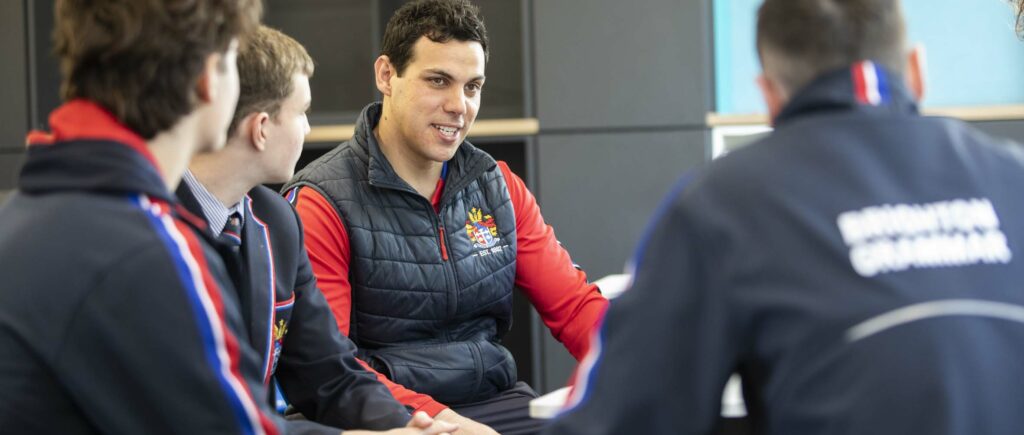Coaching conversations
Coaching is a key part of the BGS way of being, for all students and staff.At its core, coaching creates a culture that enables people to engage in a process of continuous improvement and self-reflection.
Whenever we are looking to improve, whether it be academically, on the sporting field, musically or even socially, we need to be clear about what we want to achieve and how we can bring these goals to fruition.
For goals to be effective, they need to be specific and attainable. By breaking down goals into achievable steps, we feel more in control and less likely to feel overwhelmed.

Taking the time to clarify our own goals with somebody else also makes us feel more accountable and increases feelings of self-efficacy.
It is important to note, that a coaching conversation is a conversation, not a lecture. Underlying the coaching process is the belief that the person being coached should be empowered to come up with their own solutions.
Coaching conversations generally follow the following structure:
Define the goal
What do you want to achieve, improve or change?
Define the current reality
What is happening for you at the moment in relation to your goal? What is getting in your way? What do you need to find out? Will achieving this goal improve your situation?
Explore and choose a strategy
What are some steps you could take? Are there any other strategies you could try? Which way would work best for you?
Commit to action
What are you going to do and by when? How are you going to ensure that you follow through on your commitment?
Revisit the conversation periodically
Is the strategy working? Is there anything else you need to do? What support do you need? How do you feel about your progress?
Good coaching conversations are rewarding for both the coach and the coachee, leading to better relationships, closer connections and greater understanding.
Kristen Molloy
Associate Head of the Crowther Centre, Literacy and Engagement

